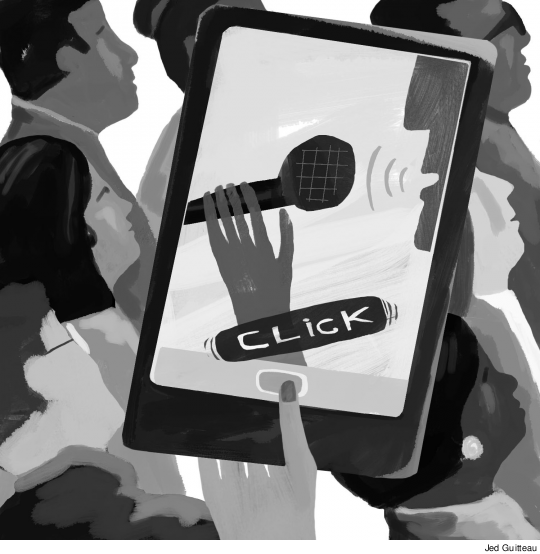
Recently, while scrolling through hundreds of photographs taken with my cell phone since spring, I found myself struck by the sheer number of rallies, marches, and pickets I had participated in. They were large and energetic, sometimes numbering in the hundreds, sometimes in the thousands. Among them were the Albany “war room” rally and direct action, the PSC budget/contract demonstration at BMCC, and the May 12 mass mobilization on Wall Street. Bloombergville kicked off the summer, then Verizon workers picketed on West Steet, and recently students and the PSC protested at meetings of the CUNY Board of Trustees (twice). Scattered throughout the fall months, of course, was Occupy Wall Street (OWS).
BUILDING MOMENTUM
The excitement grew with each event and there were poignant and memorable moments specific to each: Verizon workers boisterously cheering as a PSC contingent joined their picket line; the beautiful comments tweeted from young people at Bloombergville; construction workers in cranes high above honking and cheering for a large OWS demonstration heading for Police Plaza; the warm response at Zuccotti Park after making a contribution (“Oh thanks, we really need men’s pants!”); adjunct faculty speaking passionately and intimately of their basic right to health care; stu-dents in the lobby of the Graduate Center holding a speak-out before marching to Union Square; and so many more.
During this year, I was also busy attending important and motivating PSC-HEO meetings at campuses across CUNY. It is, of course, this day-to-day work of the PSC chapters that, over the long run, trains us and builds a union capable of providing leadership, working in coalitions, and collaborating with other workers and students. But it was the excitement happening outdoors, in the streets, that brought the union to life for me this year.
NEW FACES
What struck me were the new faces at each event, younger members and supporters who brought renewed energy and militancy. Most poignant, though, were the personal stories: those of workers in other unions, students, adjunct and full-time faculty and staff.
The student voices were especially moving. Whether in person or via online videos, young people were honestly and passionately sharing their concerns, predicaments, fears, anger, and hope. Sometimes I would find myself thinking about them days and even weeks later, their profound narratives lingering.
For the October Graduate Center conference on Defending Public Higher Education, co-sponsored by the PSC, graduate students urged me and other staff and faculty members involved in plan-ning to “make it non-hierarchical, make it a real conversation.” We very much intended to do this, leaving lots of time for audience participation – but we could not have imagined that, in the at-mosphere a few weeks after the start of OWS, the CUNY community and others would respond so strongly to this event. Doing what we should be doing in academia – respectful listening, debat-ing, and planning – connected analysis and inquiry to action at this crucial moment.
At the Graduate Center I work with doctoral students. I am constantly impressed with the creativity, intelligence, curiosity and commitment they bring to their learning. But this year their activism has revealed yet another facet of what they feel compelled, at this moment, to present about themselves.
A BETTER CUNY
One graduate student began her testimony at the speak-out in the Graduate Center lobby with “I love to teach. I love to learn.” It would have been fine had she chosen to begin with “I want…” or “I need…” or “We need…,” or any other number of other insights or demands. Instead, she chose to begin with “I love to teach,” succinctly and beautifully describing her dedication to her students and her vision for teaching at CUNY. And then there were the many undergraduates who detailed personal family circumstances – at demonstrations, to the press, to the CUNY Board of Trustees – about how it has become increasingly difficult for them to remain in college.
All of this made me reflect on my own story, because a good number of years ago I was at a personal crossroads when my career “went computer.” I was recently divorced with two young chil-dren, trying to decide where I would go professionally. How would I find direction, new opportunities, new inspiration?
I chose to return to college by enrolling at CUNY, as my mother once had. I asked a friend how to proceed, and she suggested Women’s Studies and a professor of political science and women’s studies, Ros Petchesky.
No, CUNY was not free (thank you very much), but I took out a small loan and, with the help of family and friends, I was on my way. When my daughter graduated, we became a family of three generations of women with degrees from CUNY. I took one class on immigrant women in which the students came from over two dozen countries. Where but CUNY would you find such inspiring faculty and students to learn from? This is where my commitment to this University comes from.
So when we as students or members of our union chant “Whose CUNY? Our CUNY!” what are we saying? Yes, it is sometimes about the physical space of our public university, but it is also about our personal stories, about CUNY’s historic mission to educate all, and about our collective aspirations for a better CUNY today. And while various circumstances and reasons have brought students, faculty, and staff to this University, in this transformative moment we have inspired and supported each other in unexpected ways. We have found common ground among ourselves and with a wide array of other groups on issues of income inequality and fair taxation. The sharing of our experiences and different realities has invigorated and emboldened us. The listening, learning, and solidarity that has resulted from so many disparate voices coming together bodes well, I think, for our building an enduring movement for change.

